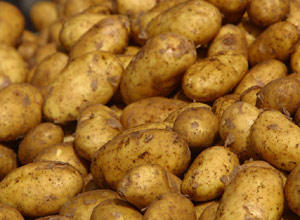
A virus that commonly infects potatoes bears a striking resemblance to one of the key proteins implicated in Alzheimer's disease (AD), and US researchers have used that to develop antibodies that may slow or prevent the onset of AD, according to the August 15 Journal of Biological Chemistry.
It said researchers from Case Western Reserve University reported that they used this concept on an amyloid-like protein found in potato virus (PVY).
They injected PVY into mice followed by monthly boosters for four months. The researchers found that the mice produced strong levels of antibodies that could attach to amyloid beta protein both in solution and in tissue samples of Alzheimer's patients.
Studies in mice have demonstrated that vaccinations with the amyloid beta protein (believed to be a major AD contributor) to produce antibodies can slow disease progression and improve cognitive function, possibly by promoting the destruction of amyloid plaques. Some early human trials have likewise been promising, but had to be halted due to the risk of autoimmune encephalitis.
One way to make Alzheimer's vaccinations safer would be to use a closely-related, but not human, protein as the vaccine, much like cowpox virus is used for smallpox immunizations.
The research team note that potato virus is a fairly common infection that poses no risk to humans (many people have probably eaten PVY infected potatoes). While tests of PVY antibodies will ultimately determine how useful they can be, they may be a promising lead to treating this debilitating disease.
(Xinhua News Agency August 16, 2008)